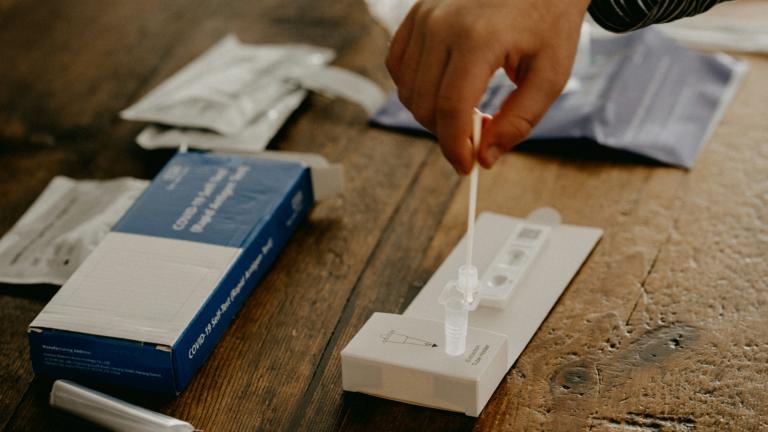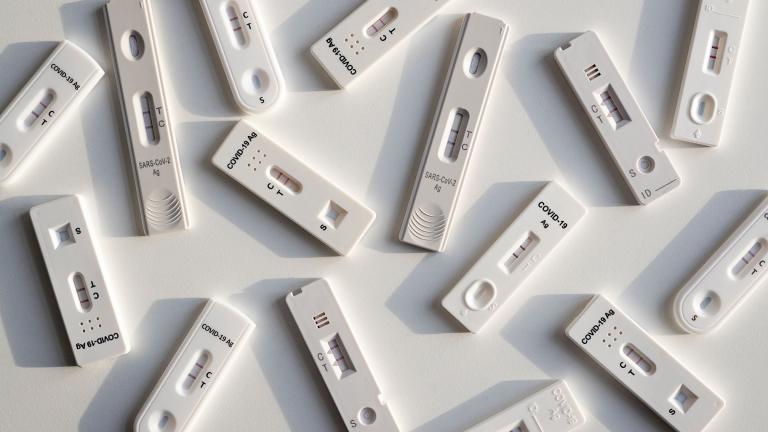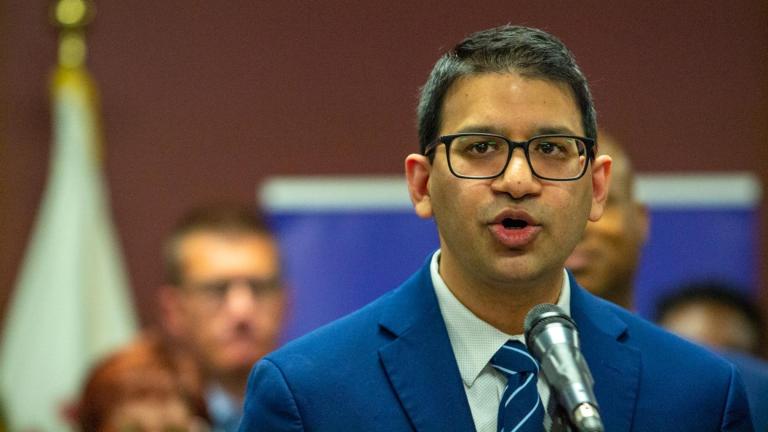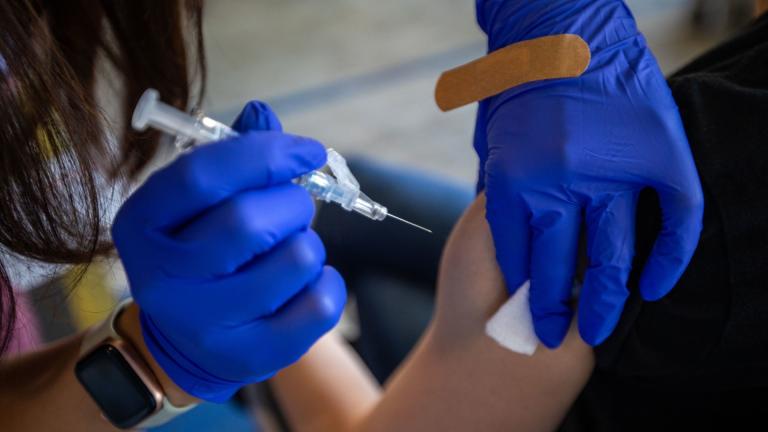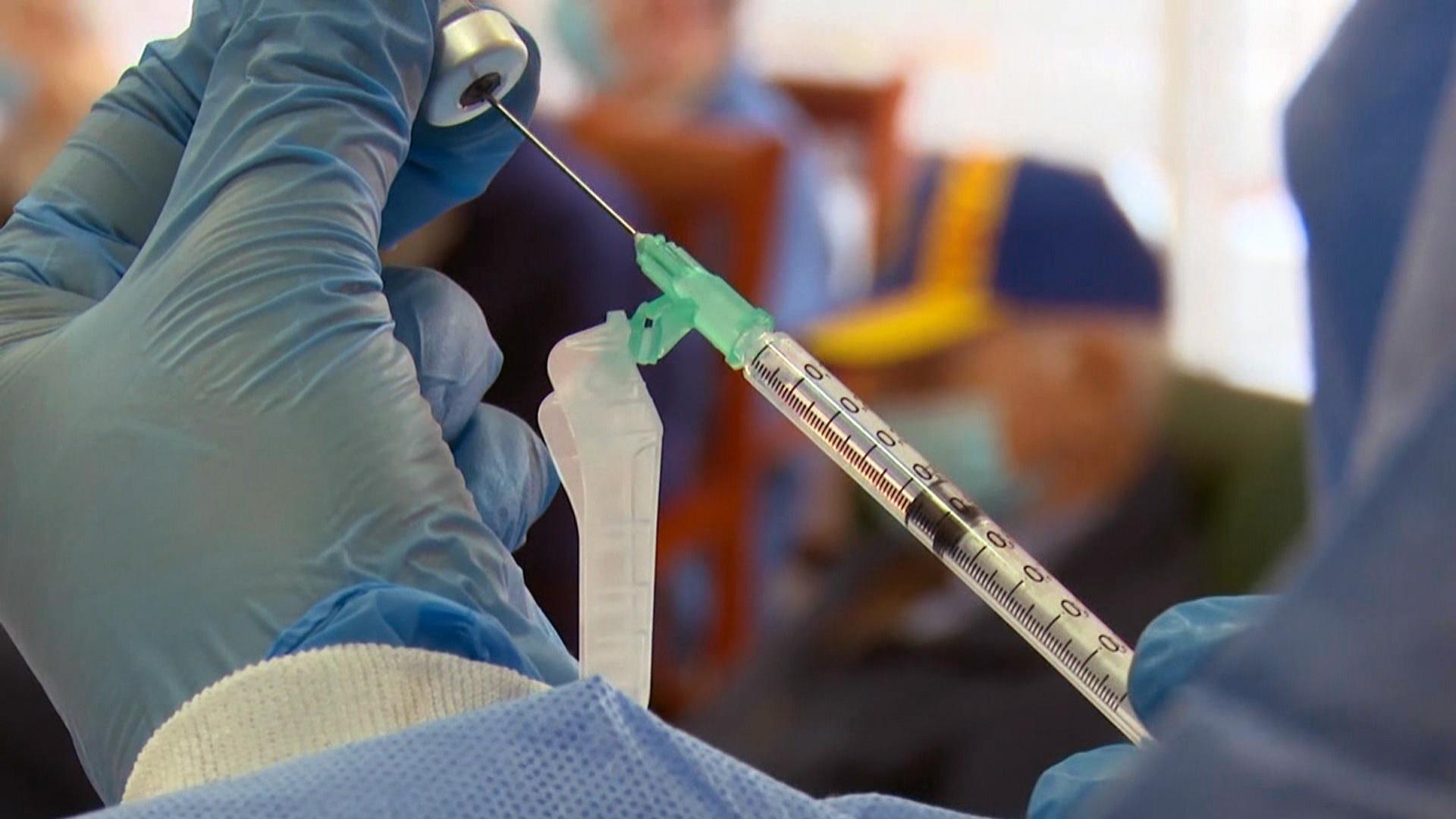 (WTTW News)
(WTTW News)
Can COVID-19 vaccines affect mammograms?
The Centers for Disease Control and Prevention reports the COVID-19 vaccine can cause swelling in the lymph nodes in the underarm where women received the shot, which the agency says is normal and a sign that your body is building protection against COVID-19.
“If a woman has a vaccine in her left arm, she’s now at a higher rate of developing swelling that’s intermittent and transient of the lymph nodes in her armpit on that side as her body responds to the vaccine and creates antibodies,” said Dr. Georgia Spear, who heads NorthShore University HealthSystem’s department of breast imaging.
That swelling can show up on mammograms, according to the CDC.
“I would like to ensure that all women know that vaccination has up to a 16% chance of causing unilateral swelling of lymph nodes,” Spear said, adding other immunizations such as flu and HPV vaccines can also cause swelling of the lymph nodes. “It’s important to just remain aware and also diligent in follow up.”
Unilateral swelling of lymph nodes on an otherwise normal mammogram is rare, according to Spear. “We don’t see it all that often.”
But with millions of people getting vaccinated against COVID-19 all at once, Spear and other clinicians are seeing more women with that type of swelling.
Lymph nodes are tiny structures that are part of the lymphatic system that helps rid the body of toxins, waste and other unwanted materials.
“Any time the immune system is active – whether it be fighting an infection or inflammation in the body – lymph nodes can intermittently swell and come back to normal,” Spear said. “Lymph nodes swell when a cancer or malignancy is in the body and can be an indicator of that as well.”
While swollen lymph nodes can be a sign of cancer, “there is not a connection between the COVID-19 vaccine and breast cancer,” Spear said. “There is no connection.”
Clinicians are doing their due diligence to determine the cause of the swelling when it appears on mammograms, asking women if they’ve recently been vaccinated, and if so, in which arm they were jabbed and the date of vaccination, according to Spear.
“We also have to do our due diligence, noting whether or not a vaccine is the most favorable reason why a woman is developing this, or is underlying breast cancer causing this, or an infection,” she added.
While clinicians want to catch breast cancer early, when it’s more manageable and treatable, “we don’t want to cause harm and recommend a higher number of biopsies because we’re seeing more swelling of lymph nodes,” Spear said.
To address this, the Society of Breast Imaging has developed guidelines for clinicians to follow. When swollen lymph nodes appear on a mammogram, a woman will be recalled for an ultrasound within four to 12 weeks.
“(We’ll) bring them in to do an ultrasound of the area, document the size of the lymph nodes that we see, and put the patient under a short-term follow up protocol to allow their bodies to allow the lymph nodes to return back to normal,” Spear said.
If the swelling is due to vaccination, clinicians expect it to resolve, or at least improve, within four to 12 weeks based on scientific literature, according to Spear.
“The timeline for lymph nodes to return back to normal can vary. ... Some women may not resolve in four weeks. Others in eight to 12 weeks,” Spear said. “We follow up based on what we see and will consider biopsy for lymph node swelling for a definitive answer.”
Since swollen lymph nodes have been linked to the vaccine, the CDC advises women to get mammograms before they’re vaccinated or wait four to six weeks after being fully vaccinated to get one.
“If you’re due for a mammogram and just had a COVID-19 vaccine, waiting four weeks after your second dose is reasonable, but don’t delay care any further if you’re asymptomatic,” Spear said.
“If you’re symptomatic, please come in and see us,” she added. “Do not delay coming in if you feel a lump. Come in. We want to ensure we can evaluate you and find (any cancer) early while it’s manageable and treatable.”
Last year, many women skipped annual screening mammograms because of the pandemic.
“We’re seeing more breast cancer in those women who skipped a year of screening,” Spear said. “If you skip a year of screening, you now have experienced growth of cancer in a timeframe from when we couldn’t find it. We’re finding cancer that may be larger than it had been a year ago.”
Since there’s no record to compare with from a year ago, clinicians can’t predict the cancer’s progression and there’s also a higher chance the cancer can spread, according to Spear.
“This reinforces how important screening women annually is, how important it is for women to continue to do this in the face of the pandemic,” Spear said.
Contact Kristen Thometz: @kristenthometz | (773) 509-5452 | [email protected]



